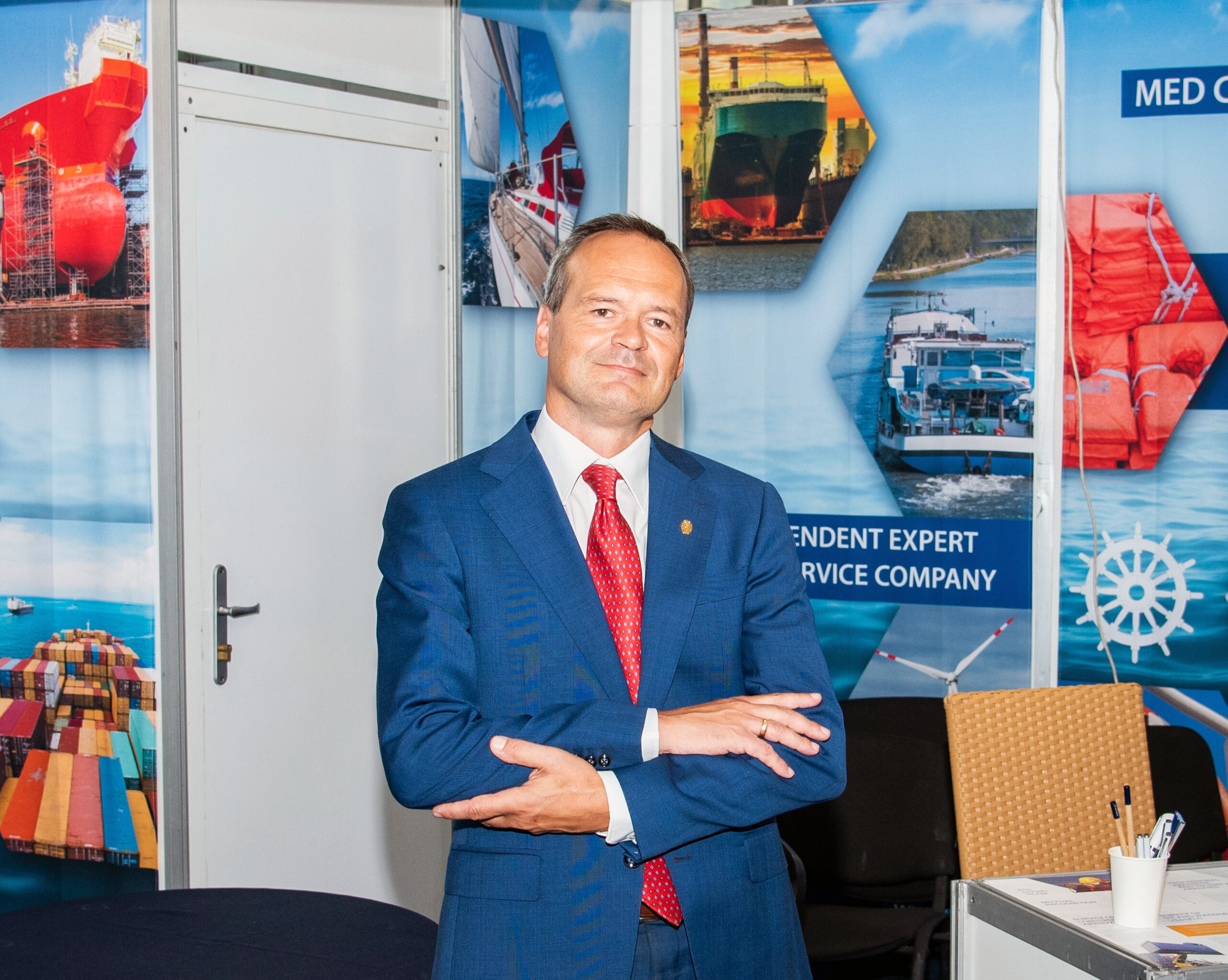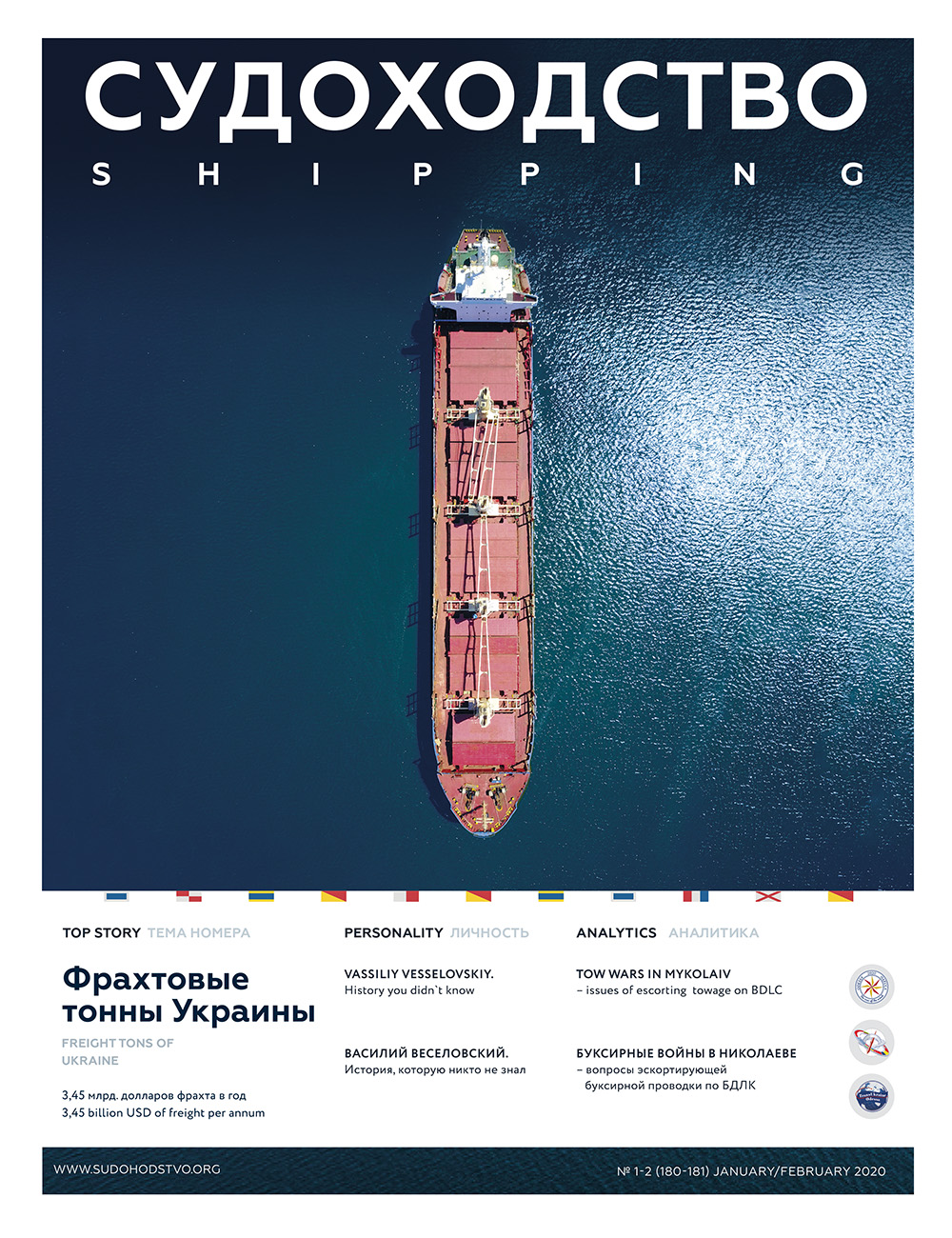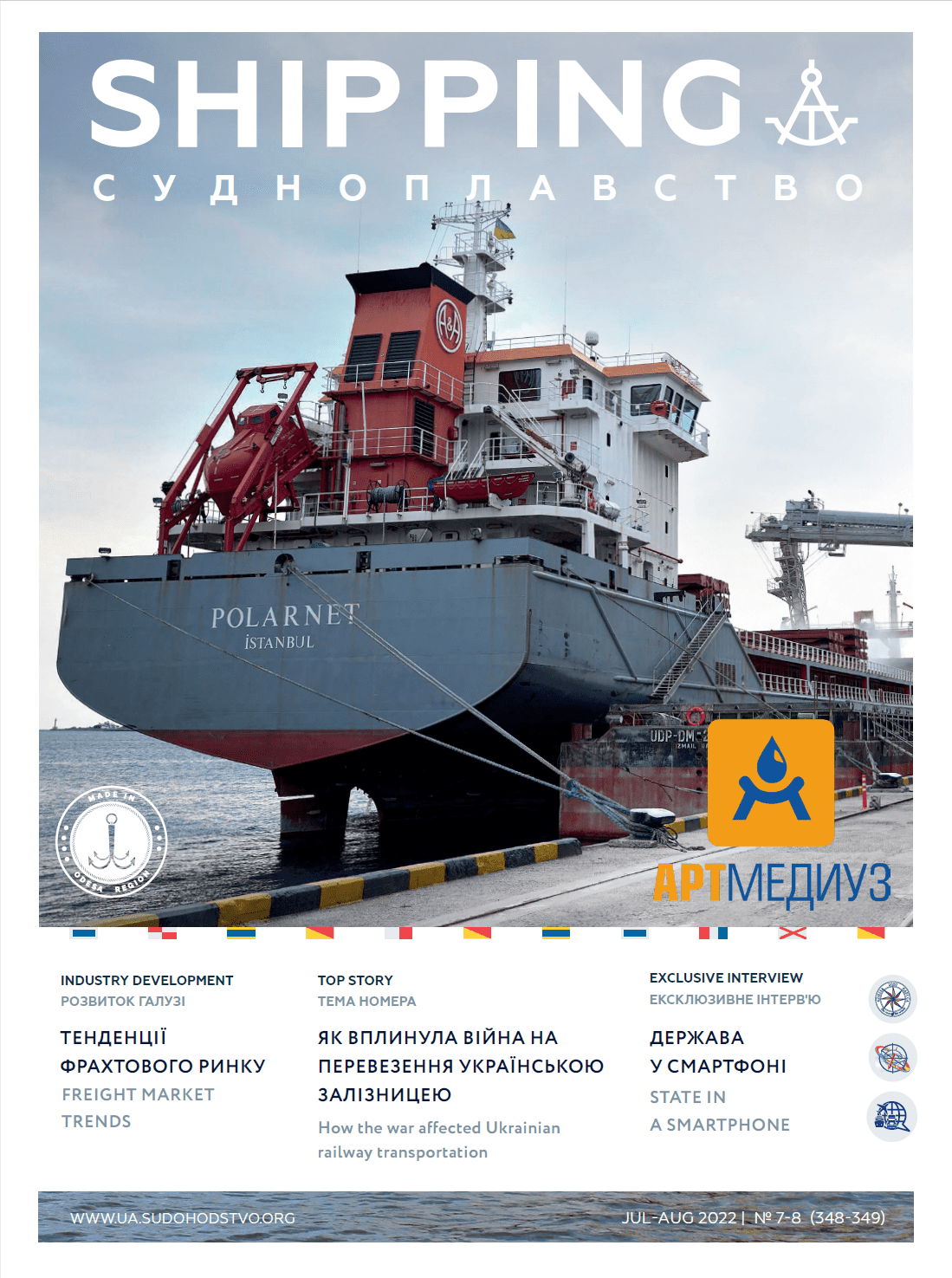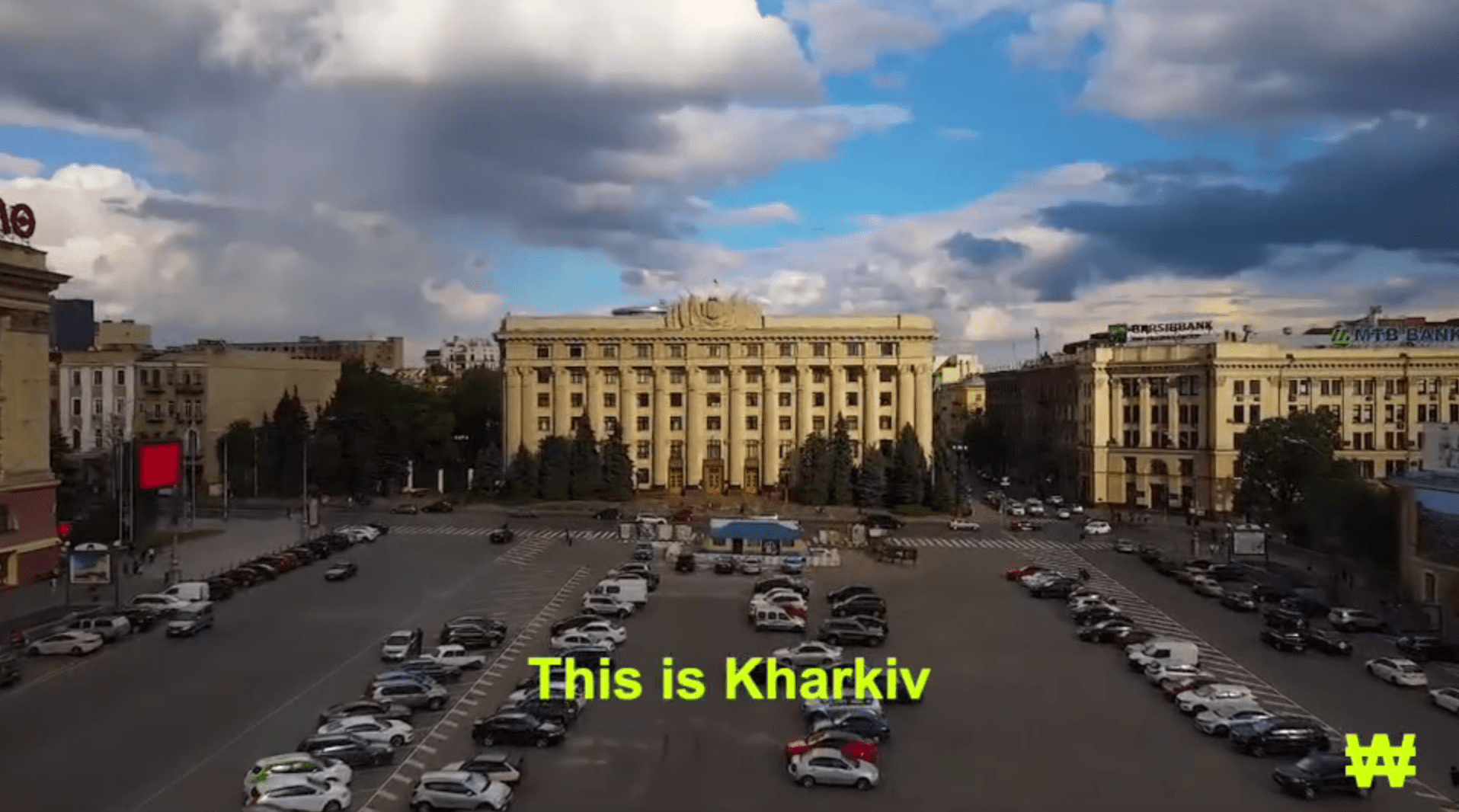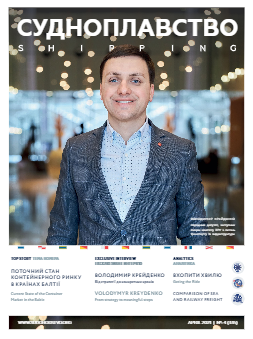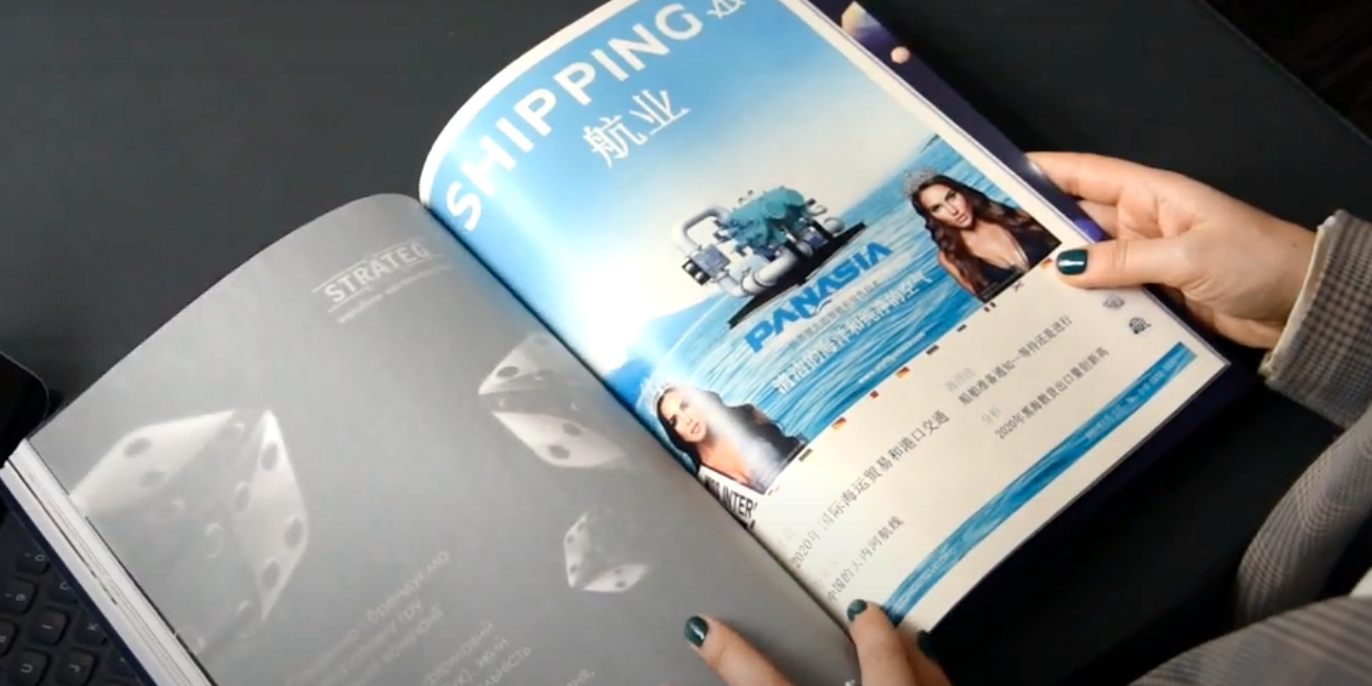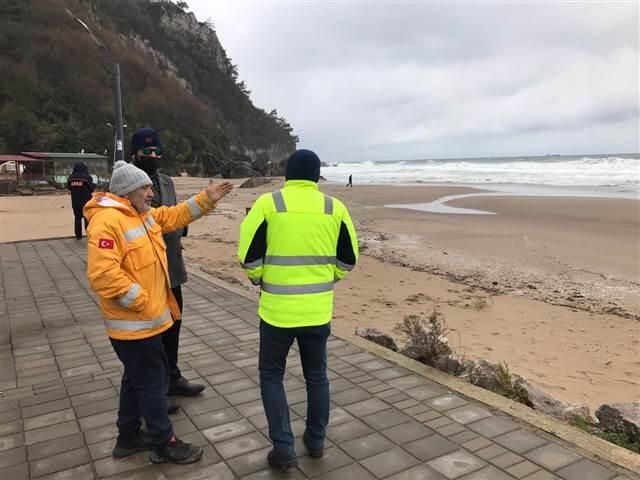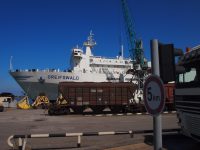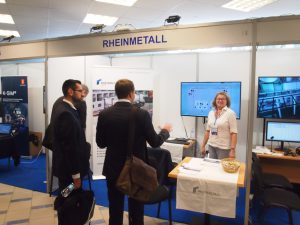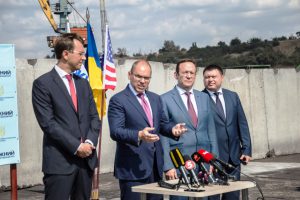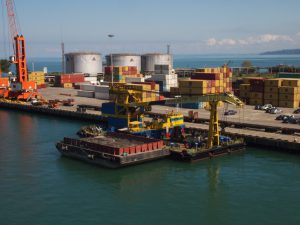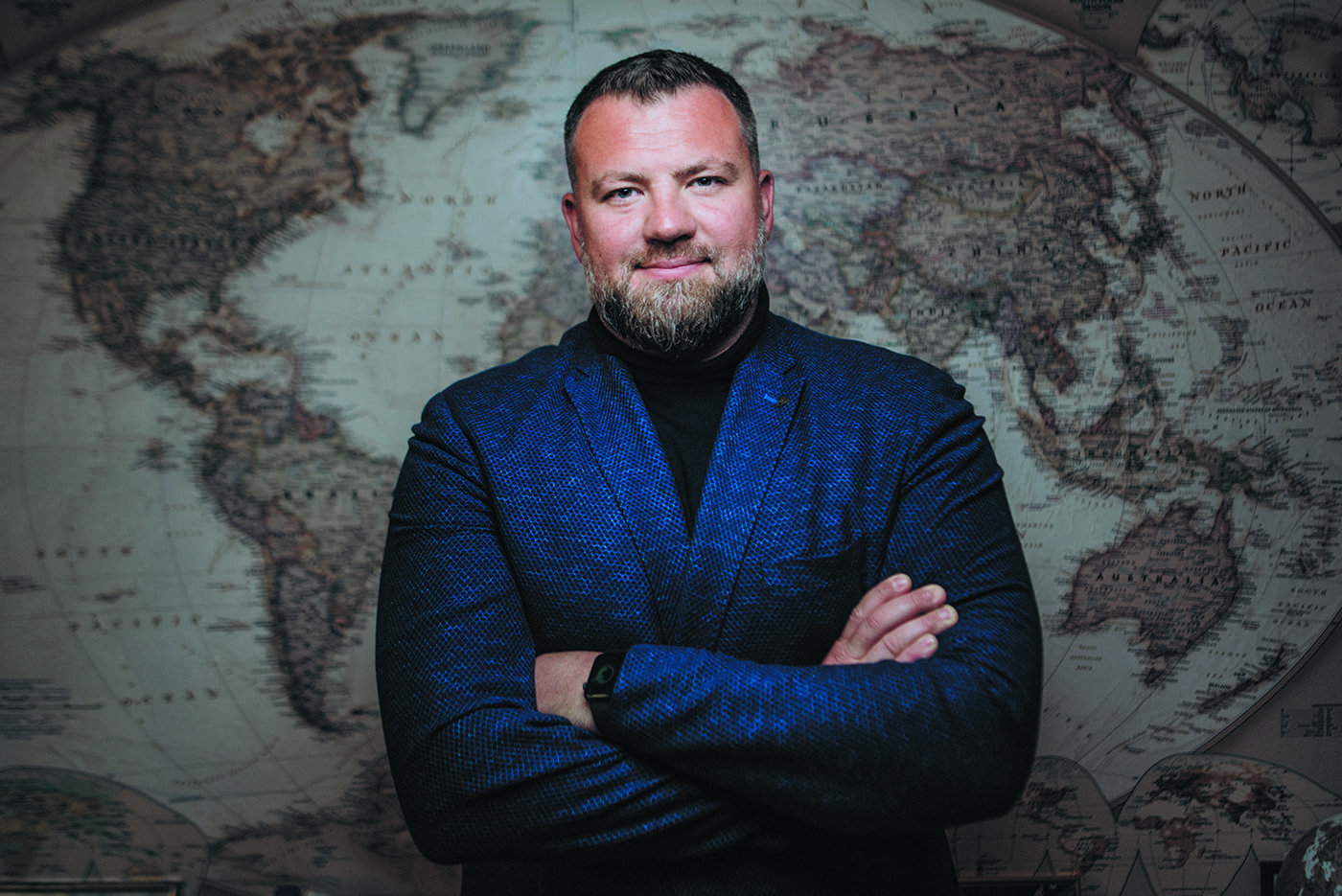
Oleg Grygoriuk
Chairman of the Black Sea Primary Trade Union of Seafarers, Chairman of the Trade Union of Maritime Transport Workers of Ukraine, Ambassador of Goodwill of the International Maritime Organization in Ukraine, Vice President of the International Association of Sea Captains.
Every year, about 5 thousand Ukrainian seafarers receive new diplomas to occupy a higher position, and another 18-20 thousand confirm their qualification. Over the past two years, these procedures seem to be a «road to Calvary», as the system has been engulfed in total chaos and confusion. The editors turned to the Chairman of the Marine Transport Workers’ Trade Union of Ukraine Oleg Grygoriuk to hear the position of the Trade Union and ask the most painful questions that worry seafarers.
What goals and objectives did you set for yourself when you became the MTWTU Chairman? What have you already managed to implement?
I was elected Chairman in May 2021 and, of course, immediately started to implement all the ideas and plans that we set at the beginning of the year, aimed at improving social dialogue with our partners – the Ministry of Infrastructure and the Maritime Administration.
Today, our Trade Union, as the largest sectoral maritime transport trade union in Ukraine and the only maritime ITF affiliate representing Ukraine in the international trade union movement, has a wide range of tasks, including establishing relations with international partners. This year, the Union is re-signing the ITF collective bargaining agreements of the IBF and TСC format. These are the fundamental documents concerning seafarers’ work and life, as well as, most importantly, the level of wages.
In such a stressful period, we are striving to implement various social projects. Since the beginning of the year, we have visited a large number of our local trade union organizations all over the country. The situation is quite difficult now. We try to be a part of concession processes, where they take place, so as to guarantee our Trade Union members protection of their interests.
We assist in organizing vaccination for interested Trade Union members, I emphasize, only for those who ask and are ready for such service. About 500 people from Odesa and the regions got a full course of vaccination against COVID-19.
We also proceed in arranging educational projects. Now, due to quarantine restrictions, it is quite challenging to continue the active training process. We cooperate with highly qualified psychologists, mentors who can help with concerns like getting promotions for junior officers, etc. Our key task is to protect the labour rights and interests of our members with regard to seafarers’ claims. Unfortunately, the number of deaths of our seafarers on ships has increased. I do not remember that many relatives earlier turning to us on such sad occasions. We negotiate with foreign owners of the ships where such tragic cases occur, as well as keep in touch with relatives and advise them.
There are also many issues on wage arrears: our claim-handling department, the ITF Inspectorate, has once again succeeded to return more than $ 1.5 million over these 10 months, including compensation to Ukrainian seafarers or their family members.
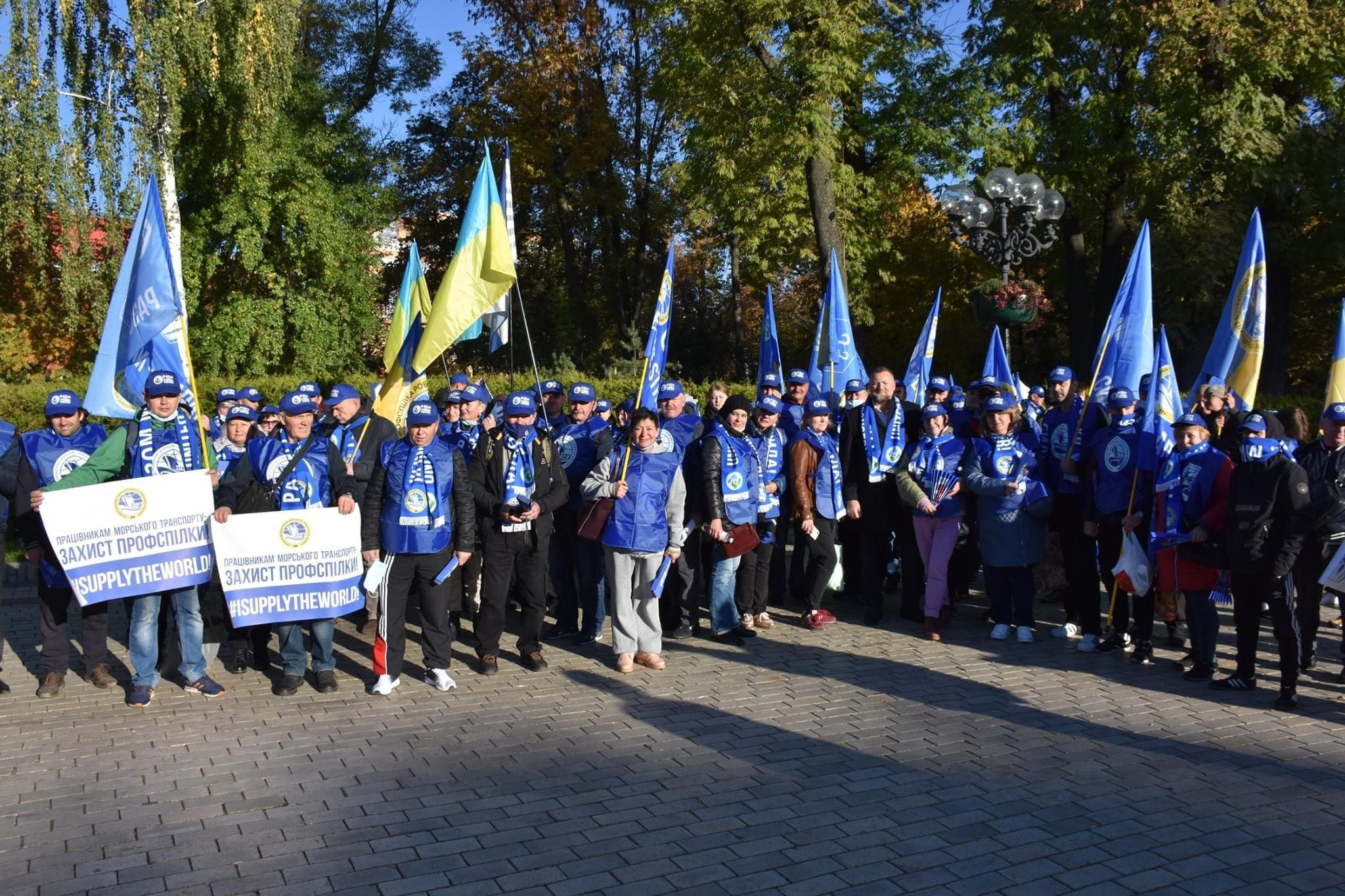
What is the position of the Ministry of Infrastructure on recognizing seafarers as «key workers»?
A very long time ago, the deputies raised this issue, and also your magazine covered the Seafarers’ Days Odesa 2021 conference held this summer – the MTWTU-organized event with the participation of representatives of the Ministry, deputies, and maritime stakeholders. To this moment, more and more countries have recognized their seafarers as «key workers» and, in all possible measures, are working to facilitate their smooth border crossing, priority vaccinations, and first aid in case of COVID disease.
It is a declarative pattern. It would allow the Trade Union and the Ministry, as a specialized management body and policy-maker in maritime transport, to conduct a more open social dialogue, to help seafarers in all matters and in all the work concerning the state. We had several meetings with the Minister of Infrastructure on signing a memorandum of understanding between the Ministry and our Trade Union, which would lay down the key declarative norms and principal points. From our side, it is a full contribution to the ratification of the MLC Convention, 2006, and assistance in writing specific draft laws.
Over the past 10 years, we have done a great job in this direction. We have repeatedly invited the International Labour Organization representatives to Ukraine, who retained the authorship of this Convention and held a huge number of international seminars that revealed to market players the real situation in cooperation.
All licensed crewing companies that work with foreign partners have their own MLC certificate and operate under the Convention, therefore the ratification of this document will not surprise anyone, but will emphasize that Ukraine is not indifferent to its seafarers, helps them in education, protects their interests and provides aid. It is crucial with respect to the international image because Ukraine is known for several negative aspects – Crimea annexation, the war in the East, and various internal problems that Ukrainian seafarers face, so it is necessary to send positive signs to the international maritime community.
The seafarers’ certification system in Ukraine has been in a fever for a year. How does the MTWTU evaluate the current situation?
The situation is, certainly, critical and requires immediate actions.It is important to note that, unfortunately, the certification system started ailing much earlier, when back in 2019 costs for training services soared.
There was created a «club of training centers», whose certificates of completion were required as a condition to confirm qualifications in the State Qualification Commission (SQC). This «club» was formed by the Maritime Administration of Ukraine and Inspectorate for the Training and Certification of Seafarers (ITCS) absolutely artificially by refusing to accept documents for admission to the SQC, refusing to inspect training centers that are not part of the «club» and refusing the issuance of the appropriate Protocol of compliance. The Ministry of Infrastructure has not updated the list of approved training centers for almost a year, although it must do so every 3 months. Then we responded immediately.

In early February 2019, we held an open meeting at the MTWTU office, where we invited all the interested parties: the Ministry of Infrastructure, the Maritime Administration, ITCS, heads of training centers, crewing companies and, of course, seafarers. The record of this meeting is publicly available on the web.
Only after numerous letters from the MTWTU and under tension from a number of people’s deputies of Ukraine, just before visiting meeting of the MTWTU Central Council, which we specially held in Kiev, the Ministry for the first time in a year updated the list of approved training centers. It was no coincidence that I returned to 2019. Then, the main points characterizing the current situation in the seafarers’ certification system were formed: the complete absence of any dialogue with the Ministry, the Maritime Administration, and even more so with the Inspectorate, as well as lack of any systematic planning.
Unfortunately, the situation did not improve despite the management shift of these departments. For example, the matter of quality and cost of training in centers is still more than relevant. However, it was proficiently replaced by another top problem for Ukrainian seafarers: first, to the establishment of a completely corrupt AST-test, then to the Seafarer’s Electronic Cabinet, then — diplomas with QR codes. Each next step of the officials only led to a worsening of the situation, and in the end, the certification of seafarers became completely paralyzed.
With the arrival of the Minister of Infrastructure Olexandr Kubrakov, the first signs appeared to change the situation for the better. At least now we have a direct dialogue. The MTWTU’s position was heard, and we see real actions to normalize the situation from the Ministry’s side.
What has been done by the Union to protect the seafarers’ rights?
We have filed several lawsuits for the recognition of the unlawful inactivity of the Inspectorate and the Maritime Administration; we helped the seafarers to defend their rights after the illegal decisions of the State Qualification Commission.
There was always a hidden motive behind the beautiful idea of procedure simplification for seafarers, which they tried to present to us: a million of new absurd requirements for seafarers to confirm the length of service on ships, requirements for the mandatory use of an unknown information system that works without any protection of seafarers’ personal data and which located on unknown mysterious servers.
Together with leading training centers and crewing companies, we prepared a completely new draft of the Procedure for conducting inspections of training centers, which was submitted to the Ministry in August 2020 and which, unfortunately, «died» there. Also, our Trade Union prepared a draft law of Ukraine «On Amendments to Article 51 of the Merchant Shipping Code of Ukraine Concerning the Requirements for the Qualification of Crew Members» that provides seafarers with the right to obtain re-confirmation of their competence to work on ships without passing examinations in state qualification commissions.
The well-known draft №3944, introduced by People’s Deputy Ivan Shynkarenko. Project №3944 was criticized by some experts for not solving all the seafarers’ problems, but only a part of them, for example, the SQC procedures were saved.
Firstly, remember, who criticized it and when. During the local elections in Odesa, only the lazy candidate did not use this pretext in his campaign.
Secondly, the main goal in developing the draft law was to provide seafarers with the right to obtain re-confirmation of their competence to work on ships without passing examinations in state qualification commissions, and it makes more than 70% of seafarers who pass the SQC.
We had undisputable grounds for this position — Rule I / 11 of the STCW Convention, in fact, is a direct norm of an international convention ratified by Ukraine. If we tried to change other issues, for example, completely remove the SQC or regulate the work of training centers at the legislative level, we would immediately receive a lot of questions from the people’s deputies: if it is not the SQC, then who and how will confirm the qualifications of seafarers, the price and safety of these services, etc. We would have received completely another level of opposition and would have achieved no result.
Ultimately, draft law №3944 was supported by an absolute majority, and seafarers were able to re-confirm their qualifications only based on the length of service on ships. The second essential rule that we laid down in the project was that the Regulations on Ranks of Command Personnel of Seagoing Ships and the Procedure for their Assignment are approved by the Cabinet of Ministers of Ukraine, not by the Ministry.
This is explained by the fact that the Regulations on Ranks have long been outdated, did not comply with the STCW standards, and required a comprehensive revision. The Ministry, however, did not show any activity, let alone efficiency in this matter. Therefore, the draft law included a standard that obliges the Ministry, within three months from the date of law’s entry into force, to develop a new Regulations on Ranks and submit it for approval to the Cabinet of Ministers.
Unfortunately, these three months have already ended long ago, but things have not moved an inch. Moreover, the Ministry does not seek to regulate the procedure for re-confirmation of qualifications based on the length of service on ships, which the Inspectorate benefits from. At first, the Inspectorate held formal SQC meetings to re-confirm qualifications, but now it regularly forces seafarers to pass the Automated Testing System (AST-test) even if they have experience.
At the same time, back in July, the MTWTU developed and routinely submitted to the Ministry a draft resolution of the Cabinet of Ministers of Ukraine, which was supposed to settle the issue of re-confirmation of qualifications. But this project «died» in the Ministry without any comments or statements from the officials.
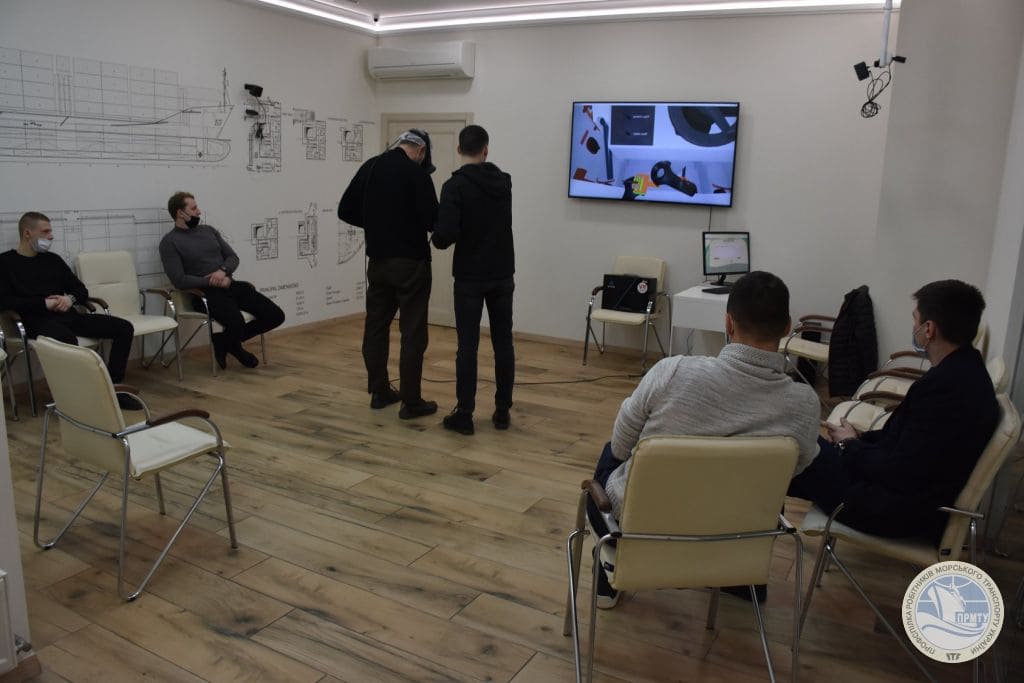
The Ministry of Infrastructure announced the launch of an experimental CES system for seafarers’ testing. Will this service relieve the stress when assessing the seafarers’ competences?
First of all, the fact that the so-called «Seafarer’s Electronic Cabinet» still functions without any protection of the seafarers’ personal data raises concerns.
Seafarers are forced to issue powers of attorney on alleged «agents» who, in fact, access all the seafarer’s data into his electronic cabinet.
Therefore, we will see the first rate of experiment effectiveness by the statistics of how many seafarers will prefer the CES test to the completely corrupt one AST test.
At first glance, the CES test looks like a good alternative for seafarers. But there are well-founded cautions to the experiment itself.
First, the test is in English. Notable that the Ministry officials have long stated that the CES test will be the only non-alternative way to confirm qualifications. At the same time, for particular categories of seafarers, for example, crews of seaport vessels, it is almost impossible to confirm qualifications in English.
Secondly, it was initially obvious that the Seagull company would not permit publishing questions and answers to the test on the official source of the Maritime Administration, as required by the Cabinet of Ministers’ order. Following these conditions, it is unclear how a seafarer can prepare for the test. In general, confirmation of qualifications cannot be de-linked from the entire training system of seafarers. The State Qualification Commission is the final stage of seafarers’ training in higher and vocational educational institutions, training centers and professional courses.
Thirdly, the standard CES test is designed so, for example, that when forming a test for assessing the qualifications of navigators, the administrator, besides choosing the level of management or operation, is also obliged to choose the type of vessel. It creates the conditions when seafarer may get a test with questions about the vessels he has never worked on. In addition, this form of assessment is not correct from the view of checking seafarers’ knowledge and skills by the competency tables of STCW.
For ship’s engineers, the situation is even more complicated, as the CES test generates questions not by the criterion of the propulsion power, as provided for by the STCW and the legislation of Ukraine, but by the engine rotational velocity — medium speed or low speed.
I would like to note that shipowners or crewing companies who use the CES test created such tests according to their specific requirements. Similar tests have been designed for assessing seafarers due to requirements of the maritime administrations of Norway or the United Kingdom. It is quite obvious that similar work should have been carried out in Ukraine before the start of the experiment.
So, it turns out that SQC is the main problem. Is it possible for a seafarer to protect himself from officials’ arbitrariness at this stage?
The SQC is an important, but far from the only means of pressure on the seafarer by corrupt officials. As I noted earlier, the seafarer still needs to manage getting to the SQC stage, they put spokes in the wheels much earlier, refusing to accept applications, to confirm the length of service, or finding dozens of other reasons.
I would like to note that seafarers themselves, for different reasons, are not ready to fight in the legal field when they are «flunked» with SQC. So, this year, only six seafarers turned to the MTWTU with applications of being unreasonably «flunked» at the SQC. We provided immediate legal assistance to all seafarers, although only one of them was the MTWTU member.
About a month ago, on one of the claims filed, the court issued judgment in favor of the seafarer: the actions of the Inspectorate and SQC representatives were declared illegal, and all the SQC protocols should be canceled.
At the same time, the terms of the court hearing are critically inadmissible. During this time, the seafarer, according to his valid documents, managed to start the voyage in a position lower than he could apply for and returned home just in time for the final hearing. The litigation on the claim from another seafarer is still ongoing in the already legendary Kiev District Administrative Court.
What actions must be taken towards foreign shipowners jointly by the MTWTU and the Ministry of Infrastructure to create new jobs for Ukrainian seafarers and cadets?
For our Trade Union, it was one of the most urgent topics for the last 5 years. Basically, this matter should be one of the priority tasks of the Ministry of Infrastructure – we discussed it within the framework of a possible memorandum.
We are actively promoting Ukrainian seafarers for foreign shipowners, especially focusing on those who have never worked in our market, do not know the specifics of working with Ukrainian seafarers, and have little awareness of how our market operates.
So, several years ago, we established the format of the Europe-Asia Maritime Summit for this purpose. There we invited our trade union partners and shipowners from all over the world who were potentially interested in the Ukrainian market.
It has borne fruit: after these conferences, several companies entered the Ukrainian market, started working with crewing companies in Ukraine, created their own offices, and profile structures that recruit and provide new jobs for Ukrainians. The calculations show that during this period, we have created about 500 new jobs for Ukrainian officers and ratings.
We maintain this work, but now it has been suspended due to the pandemic and inability of our potential partners to travel to Ukraine. In due time, together with international partners, we invested big funds to improve the quality of the training for our cadets, who are also Trade Union members.

What is the «Union Dent» social project?
We continue performing various projects, and notably, it is probably the first project in Europe. Union Dent is the MTWTU-created dental clinic for its members of a specific section.
Our partners, the German trade union ver.di, have come up with an initiative so that Ukrainian seafarers working onboard the vessels of German shipowners could contact us and receive dental services free of charge. It is especially relevant before the voyage. As one of the union members said at the project’s opening: «A small health issue onshore becomes a big problem on board.” It is critical, when you do not have access to dental services, cannot visit the clinic and resolve your problem, being hundreds of miles away from the nearest port. We hope that this project will be in high demand, popular among this category of Trade Union members, and we will have the opportunity to expand the scope of these services for other MTWTU members.
Interview conducted by Marina Samsonova


